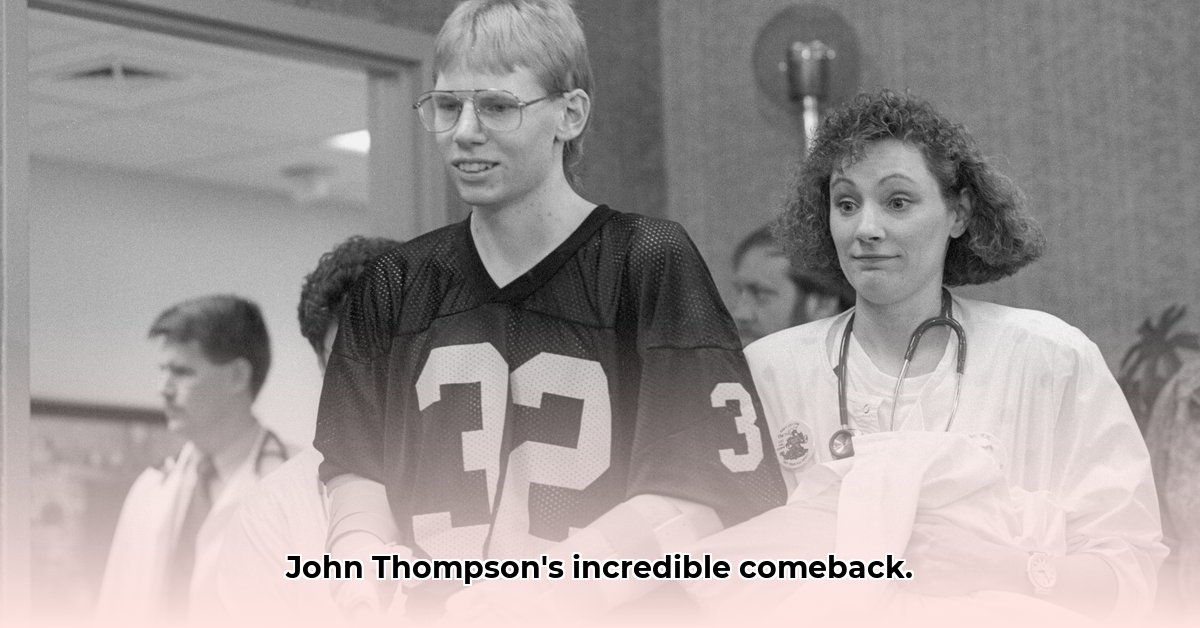
A Farmer's Fall and Rise
Thirty years ago, John Thompson’s life was irrevocably altered by a devastating tractor accident. This isn't simply a story of survival; it's a profound exploration of resilience, the multifaceted challenges of recovery, and the unexpected burdens of newfound fame. John's journey is a testament to the human spirit's capacity for healing and growth, even in the face of unimaginable adversity. His story underscores the importance of support systems, mental health resources, and the crucial need for responsible media coverage in the aftermath of personal tragedy. How did a simple farming accident become a defining moment about the importance of resilience in the face of adversity? For more on farm accident statistics, see this report.
The Trauma and the Long Road Back
The accident left John with life-altering injuries; multiple surgeries and extensive physical therapy followed. The physical recovery was arduous, demanding immense strength and perseverance. But the emotional scars proved even more challenging. He battled PTSD, grappling with feelings of loss, anger, and a profound sense of displacement from the life he once knew. Imagine the sheer terror of the accident, followed by the agonizing pain and the daunting task of rebuilding a life shattered in an instant. The psychological toll was immense, demanding an equally intense emotional resilience.
Did the physical wounds heal more readily than the emotional scars? This question highlights the often-overlooked psychological impact of such trauma, a struggle as significant as the physical recovery. This lengthy rehabilitation extended beyond physical therapy; it demanded immense emotional fortitude, the ability to confront the trauma head-on, and the determination to forge a path toward healing.
Unexpected Fame: A Double-Edged Sword
Ironically, John's perseverance brought him unexpected fame. His incredible story of resilience inspired millions, transforming him into a symbol of hope and courage. However, this public adoration carried a heavy burden. The pressure to always appear strong, to uphold the expectations of the public, intensified his private struggles. The constant scrutiny created a dissonance between the inspirational figure portrayed in the media and the very real, human being battling his inner demons.
How do we balance celebrating someone's triumph with respecting their need for privacy and healing? This is a critical question about the responsibility we have when sharing stories of resilience. John's experience underlines the potential pitfalls of sudden fame following a personal tragedy, highlighting the importance of empathy and careful, respectful media coverage. The public’s adoration, while undoubtedly touching, became an additional challenge he was forced to navigate within the framework of his healing journey.
Navigating the Complexities of Recovery
John's is not a simple narrative of triumph over adversity; it’s a multilayered narrative of recovery that encompasses setbacks as well as successes. There are varying accounts of his struggles. It's important to acknowledge the inherent complexities of his journey, avoiding simplistic generalizations and embracing the messy reality of his experiences. The goal isn't to find one definitive and easily understood narrative, but rather to respect the reality of a human life that is intricately woven together and cannot be reduced to a simple narrative of success.
What does it mean to tell a story of resilience truthfully, without diminishing the difficulties and complexities of recovery? This question underscores the necessity of responsible storytelling, avoiding overly simplistic narratives that overlook the intricacies and struggles integral to any journey of rehabilitation. John's experience is not a neat story arc; it's a fluid journey marked by ups and downs, successes and setbacks, all of which shape the whole of his healing process.
A Call for Empathy and Support
John's story, beyond its inspirational aspects, serves as a powerful call for empathy and increased support for those navigating similar trauma. Responsible media coverage, combined with greater access to resources aimed at aiding mental and emotional recovery, is vital. The future demands ongoing support for both emotional and psychological healing, not just physical recovery. His story underscores broader societal needs for improved support systems, greater empathy, and an acknowledgment of the long road to recovery from trauma.
What concrete steps can we take to provide better support for individuals recovering from life-altering accidents and the subsequent emotional and psychological impact? This question lays out actionable steps to improve support systems and resources to foster lasting recovery and well-being for individuals who have experienced similar traumas. John's journey should serve not only as an inspiration but also as a stark reminder of the critical need for tangible assistance.
Lessons of Resilience and the Strength of the Human Spirit
John Thompson’s journey is a powerful testament to the human spirit’s resilience. It is not merely about overcoming adversity but about facing the complexities of recovery with extraordinary strength and determination. His story serves as a beacon of hope, reminding us that true strength lies not in the absence of hardship but in the indomitable will to endure, to heal, and to find purpose even in the face of profound loss. The tractor, once a symbol of his livelihood, became a potent symbol of his unwavering spirit, a testament to his enduring strength and resilience.